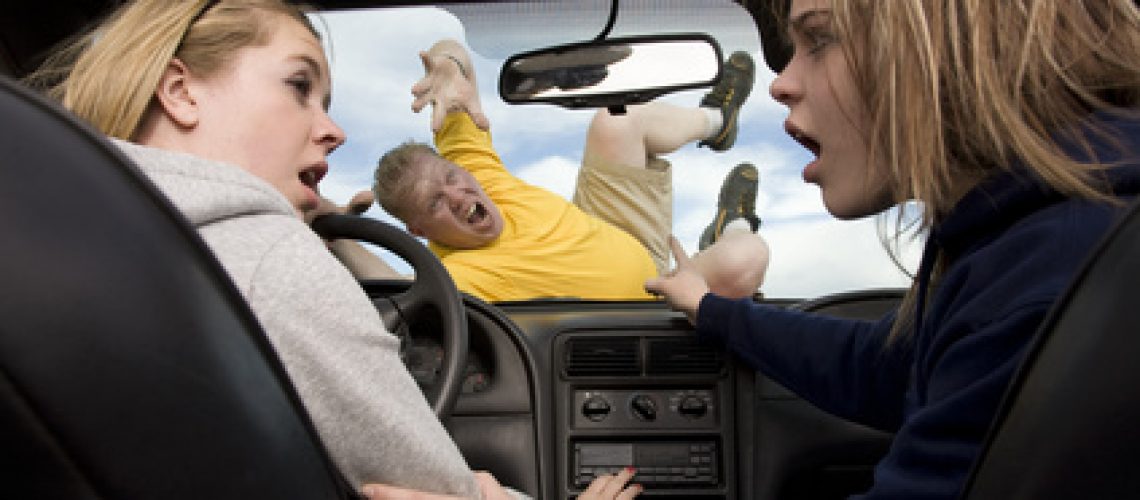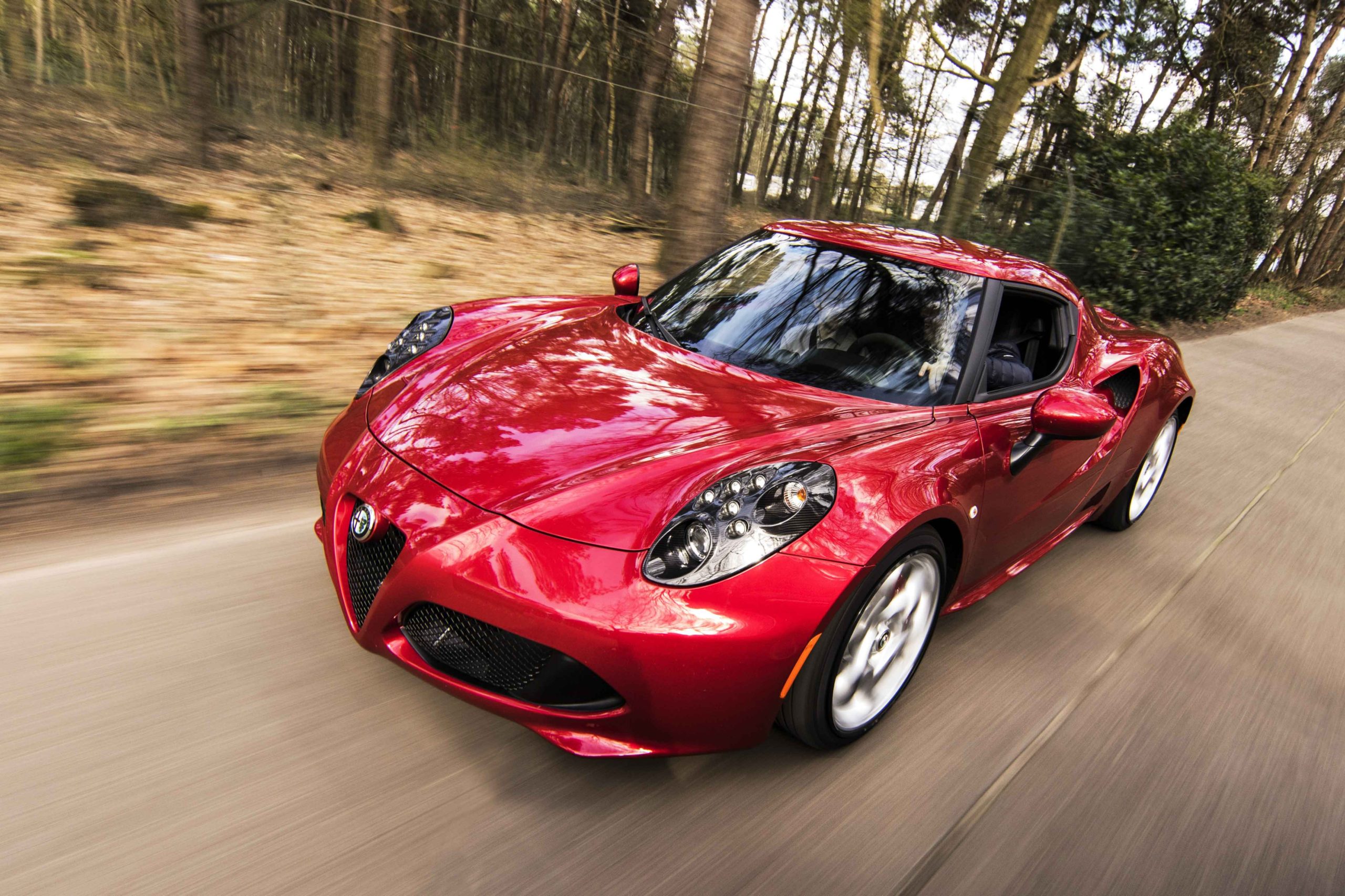You’ve probably heard that using cell phones while driving and drinking-and-driving can impair your ability to drive safely. But have you thought about other factors that can cause distractive driving? Our emotions, that is, how you are feeling at the time, as well as stress and fatigue, can seriously affect your driving. You may not even notice how it affects your driving. Your concentration and your driving can be severely affected when you are upset, frightened, worried, or depressed. Other emotions can also have a negative effect on your driving as well. When you’re happy or excited, it can easily affect how you drive. Your emotions can affect your driving the same way as if you had several drinks or if you were talking on the cell phone.
Because emotions can affect the way we drive, it’s important to recognize situations where you may not be able to keep your mind on driving. In these cases, it’s important to not drive. And if you do have to drive, you should keep in mind that your emotions may be impairing your judgment and you may have to work extra hard to keep them from affecting your driving.
Unfortunately, we may still have to drive, no matter how we feel. When faced with an emergency, being depressed because of the death of a friend or family member, receiving disturbing news, or even after a heated argument, there are things we can do to still be safe while driving.
It’s okay to pull off the road and take a few moments to calm yourself down if you are upset or angry, whether it is something that happened while driving, or some other reason not associated with driving. Take a break. Take a short walk, or sit and relax in your car while you take some deep breaths. Get something to eat or drink, but don’t choose anything alcoholic. Wait until you calm down until you start the car again.
If you’re in a hurry, the best thing to do is to give yourself a bit more time to arrive at your destination before you get the car. If you give yourself enough time, it’s unlikely that you’re going to get frustrated or rushed when you encounter accidents, work sounds, slow drivers, and traffic jams. These things are out of your control so by giving yourself extra time, you’re not going to feel quite as rushed. The benefit to this is that you won’t feel the need to break the speed limit and risk a ticket.
If your mind distracted due to anxiety, depression, worried, or if you’re just generally distracted about something that’s on your mind, you should try to focus more on driving and not the problem until you stop the car. Sometimes music can help distract you from those thoughts. Your mind should be on driving and not on the problem that you’re trying to solve. Use your mental energy for driving and think about the issue once you’re out of the car.
Distracted Driving: Serious Business
People dealing with intense emotions can be asked distracted or even more distracted than people on cell phones. Research has proven this. When you’re in the middle of intense emotions, you may experience the following:
- Impaired reaction times
- Impaired observation
- Inability to recognize certain situations
- Affected judgment — a willingness to perform risky maneuvers
- Inability to predict other drivers’ reactions
Often, a distracted driver will feel as though he or she is detached from driving, and the cars, road conditions, other drivers, and the world around in general are less real than his or her thoughts. This is particularly dangerous as it will prevent the driver from properly reacting to driving conditions.
Situations that may be affected by intense emotions may include:
- Avoiding hazards in the roadway such as deer, car parts, or other hazards
- Inability to recognize an impaired or dangerous driver
- Performing risky maneuvers such as swerving to enter or exit a particular on-ramp or off-ramp
- Willingness to take risks such as race a train at a railroad crossing
Road Rage and Emotions
You’ve probably heard of road rage in the news. Road rage occurs when people overreact and take other drivers’ behavior personally. Road rage has become common when it shouldn’t. If you have to deal with someone else’s road rage there are a few things you can do to diffuse the situation and protect yourself.
If you do something accidentally that causes someone to get angry, make a big show in apology. Mouth the word “sorry,” make over-exaggerated expressions that you apologize, and generally looked contrite. Sometimes, this helps to cool the other person’s road rage and diffuse what is a potentially volatile situation. Some people have actually made signs saying “sorry” in big block letters. Obviously these people have had experience with road rage before.
When in your car, avoid making gestures, even if you’re talking to a passenger. Those gestures could be interpreted as being offensive to someone outside of your car, even if they were not directly aimed at other drivers.
Never get out of your car. If someone approaches you, roll up your car’s windows and lock your car’s doors. If you can, leave the scene. Don’t let someone’s road rage put yourself and your passengers in jeopardy.
Preventing Road Rage
Because road rage is so common, you need to diffuse a potential road rage situation before it occurs. Other drivers often take driving behavior personally and errors in driving are often misconstrued as being aimed at them. Rage is a secondary emotion of fear, so it’s common to experience rage after having to avoid an accident. Nearly 85 percent of those drivers surveyed believed that if the offending driver were to simply show regret and offered an apology, the situation would be diffused.
Avoid Distracted Driving
But emotions are just part of what causes distracted driving. Anything can cause distracted driving at any time. Even if you spend a large portion of your day in your car you should never do anything else other than drive. Texting, talking on the cell phone, eating, Internet surfing, reading, shaving, applying makeup, reading a map, or pets can be very distracting and can put yourself and others in danger while you are driving. If you use a cell phone, choose a hands-free device and don’t spend a lot of time on the phone because the call, itself, can be very distracting and can cause you to become inattentive and more likely to cause an accident.
By keeping your eyes and thoughts on the road, you will help make a safer roadway.



